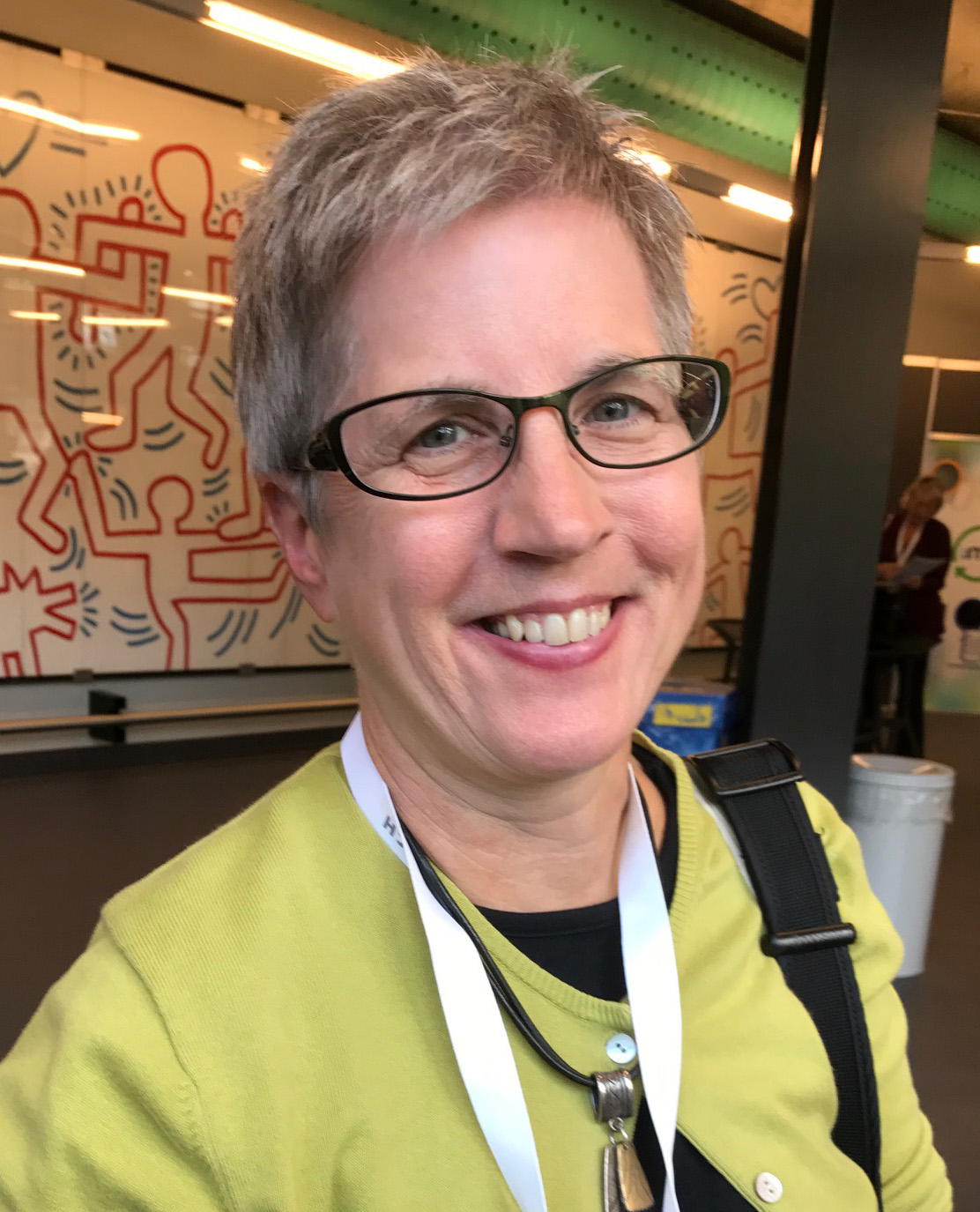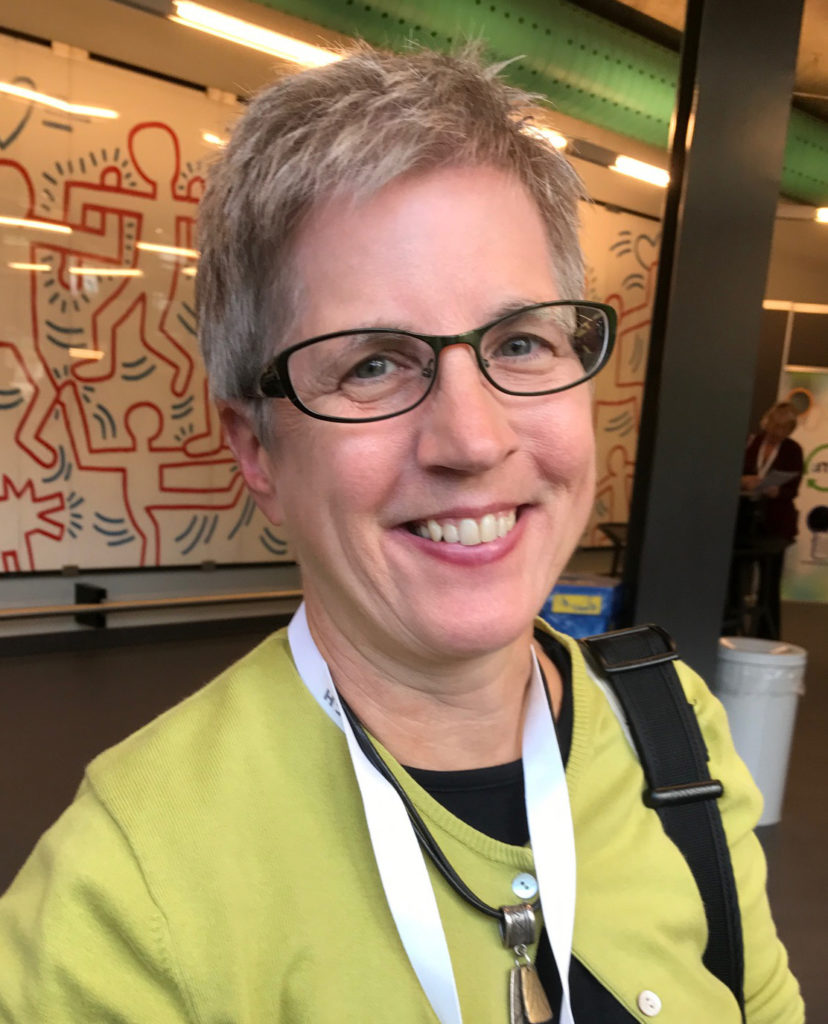Choosing the Way of Life
This sermon was preached by Rev. Dr. Barbara Kershner Daniel, former Global Ministries Board member, to partner church, Evangelical Kirchengemeinde Inden-Langerwehe in Germany on July 14, 2019.
Luke 6: 36-42
The way of the world is an eye for an eye, a tooth for a tooth. The way of the world is: you hurt me, I hurt you even more. One country builds a bomb, another builds a bigger bomb. My fence will be bigger than your fence. My wall will be bigger than your wall and I will make you pay for it. The name of the game in the world is to win. At all costs. Despite the cost. That’s the way of the world. And we know how well that’s working.
The cycle of hurt and violence goes around and around and around. An eye for an eye only makes both people blind.
I don’t know about you, but I am tired of the ways of the world. I am tired of countries threatening one another. I’m tired of children being separated from their parents because their parents did what parents do – they wanted to protect their children. They choose to make a dangerous journey and risk death on the journey rather than remain home in a country where they would likely be killed. Their crime? Wanting their children to live?
I am tired of angry accusatory tweets that attack world leaders and support dictators by the so-called leader of the free world. I am weary of politicians using our Bible, God, proclaiming hatred in the name of Jesus. I am weary and tired that people around the world think that this is who we are as Americans. In much the same way that many Americans equate anyone from the Middle East as an Islamic terrorist.
My heart breaks every time another person is shot on the streets of one of our American cities. Revenge begets more revenge. Or someone was in the wrong place at the wrong time.
I’m tired of conversations where we accuse people of being lazy because they require government assistance or food from the local food bank when they don’t make enough money to support their families even working two or three jobs.
So, where do I go when my heart is breaking? Where do I place my hope and my energies? If the ways of the world are not working, what does work?
It’s Jesus who shows us a different way. Love your enemies, do good to those who hate you. Be as generous to others as God has been to you. Forgive as freely as God has forgiven you.
Jesus invites us, challenges us, commands us to imagine a different world. To live as if we already inhabit that different world. Our world, our lives depend on each one of us speaking differently, acting differently, responding differently to break the cycle of hurt and violence and pain in the world. Every time we do something that builds a bridge rather than a wall, every time we do something that creates a relationship rather than a greater chasm, every time we say stop to the violence, every time we refuse to engage in the destructive ways of the world, we are creating the space and possibility for change.
What Jesus suggests is more than some good ideas. It’s a call to live life as a counterculture. Not the way of the world but the way of the Christ. Move away from our natural instincts to respond to hurt with more hurt. To take time to reflect on what logs are in our eyes that prevent us from seeing what our actions and behaviors are doing to create the problems we are facing. What holds us back from creating a community where all are welcomed, have food to eat, and where all can live in peace and security.
It’s always interesting to me to visit Germany and to see the ways in which your government and schools and the churches remember history. I may be over-generalizing, but I am always struck by the ways in which the most painful aspects of your national life are reflected in art, memorials, and museums. Right in the center of Berlin, that incredible memorial to the murdered Jews of Europe, the stelae covering 19,000 meters, so much land that could be turned into yet another office or apartment building. There are memorials to the murdered Sinti and Roma and homosexuals and euthanasia under the nationalist socialist regime. I am always humbled by these expressions of memorial, of remembering. The taking of responsivity and being accountable for those terrible years.
I recently spoke at a Holocaust remembrance service in Frederick and the members of the Jewish congregation asked me to specifically link the events of the Holocaust to immigration problems in the USA today. It was a powerful request for remembering that the separation of families continues to this day. That countries such as the USA are refusing to provide refuge for people who we know, we know, will be killed if we do not provide welcome.
I recognize that the issue of immigration is a difficult and challenging one for your country and certainly for ours. But as an American and world citizen, I was moved by the actions of your government to be among the first of the European countries to welcome refugees from Syria. When we know our history, we have a responsibility not to repeat the mistakes of the past. Walls didn’t work in Germany and they are not working in Israel and they will not work along the southern border of the USA. We can learn that from you.
Earlier this year, I had a conversation with a young person who said that our country will be held accountable for what we are doing to people along our border. We cannot say that we don’t know. He said, “Your grandchildren are going to ask you someday, why didn’t you do anything to help those children?”
Jesus is asking us to be responsible and accountable for what we say and what we do. We cannot point fingers and blame other people, other communities, other nations until we do the hard work of examining our own lives.
This is why traveling and meeting with Christian partners around the world is so important. These days when we share life together, engage in conversation, are ways in which we can examine the logs in our eyes. By opening our hearts and minds to one another we begin to see more clearly the ways in which we can live faithfully in ways that bring life and not death and destruction.
Jesus said, “I am the way, the truth, and the life.” We, as disciples of his message and life of peace, are people of this way, and create a new way of living and a new world. We have a choice as to how we live. Will we choose the ways of the world or the way of Jesus the Christ?
 Rev. Dr. Barbara Kershner Daniel has served as senior pastor of Evangelical Reformed United Church of Christ, Frederick, MD for seven years.
Rev. Dr. Barbara Kershner Daniel has served as senior pastor of Evangelical Reformed United Church of Christ, Frederick, MD for seven years.
Barbara is a native of Philadelphia, a graduate of Catawba College, Salisbury, North Carolina and holds an MDiv and DMin from Lancaster Theological Seminary. Prior to accepting the call to Frederick, she served as senior pastor of St. Paul’s UCC in Fleetwood for thirteen years, after serving four years as its associate pastor. She has served on many United Church of Christ boards and committees including chairing the Common Global Ministries Board of the UCC and Christian Church (Disciples of Christ).
Currently, Barbara serves as a trustee of the Pension Boards of the UCC. She previously served as a trustee of Catawba College and chair of the Board of Lancaster Seminary.
Barbara is a member of the Rotary Club of Carroll Creek.
Barbara is married to the Rev. Kenneth Daniel, who serves as President/CEO of United Church Homes of Ohio. They are the proud parents of two adult sons – Mark and Christopher.

